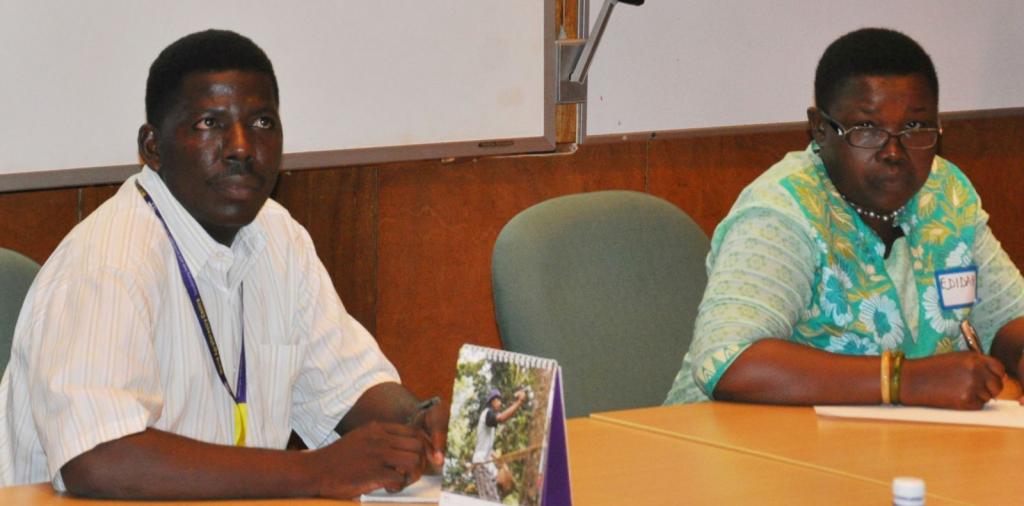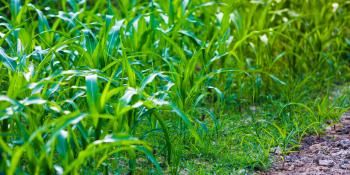New analysis suggests gender differences in how farmers adapt to climate-smart agriculture

A recent gender-focused study conducted in baseline sites in East Africa reveals some interesting results related to how men and women farmers access climate-information and are adopting climate-smart practices and strategies.
Joash Mango, a researcher with the CGIAR Research Program on Climate Change, Agriculture and Food Security (CCAFS) and Edith Ampaire, researcher with the International Centre for Tropical Agriculture (CIAT) recently presented initial findings from their recently conducted gender-focused household survey.
If you want to know more about research on closing the gender gap in farming under climate change:
- read our special blog series on Closing the gender gap
- watch the presentations and the panel discussion from the Closing the gender gap event
- follow the #AgGenderGap event hashtag on twitter
Their presentation “Understanding Gender and Climate Change” attracted a number of participants as it was held during a well-organized Gender Workshop at the World Agroforestry Centre (ICRAF) in mid-May. The workshop, organized by CCAFS and International Food Policy Research Institute (IFPRI) had the ambition to present the latest research and findings out there on gender, climate change and agriculture.
The farm based studies were conducted in three of our baseline CCAFS sites, mainly in Nyando and Wote in Kenya, and Rakai in Uganda. In each site, an intra-household survey was conducted whereby men and women were interviewed separately. In total 200 households were visited.
The study, which will be released later this year, revealed that more male farmers in Nyando and Rakai had adopted to climate change through changes in agriculture practices, as compared to women in these two sites. Joash mentioned that “men are planting trees on their farms, while practicing mixed farming.”

Joash Mango on the left together with Edith Ampire at the Gender and Climate change workshop held at in nairobi last month. Photo. T. Mburu
On the contrast, the preliminary findings reveal that:
“Women in Wote have changed planting dates, planting variety of crops in order to minimize the risks of crop failure and some have even gone to an extent of planting trees on their farms” said Mango.
For the women farmers in Nyando it is a different story: “women in Nyando don’t have enough information on climate changes, and therefore don’t see the need to adopt,” said Mango.
As we know, women can adopt and sustain climate change strategies and good agricultural practices when given the opportunity, in many cases they are just as likely as men to adopt climate-smart practices. However the adoptation of climate change practices among women is tied to the unequal access of resources between men and women, and this include limited decision making abilities for women in rural households, Mango explained.
More men in Nyando and Rakai had adopted climate smart agricultural practices as compared to women. The results also reveal that men have higher access to capital and community services as compared to their female counter parts.
One very interesting finding that came out was that men in Nyando are more aware of different climate change practices as compared to men in Wote and Rakai. This explains why men in Nyando have adopted climate change strategies as opposed to men in the other CCAFS sites said the authors.
The household analysis will be released later this year. Stay tuned on our blog for updates.
Gender analysis presentation:
Explore our gender work further by visiting our dedicated gender page.
For more information on base line studies visit CCAFS base line survey site.
Explore additional gender-related presentations on our Slideshare
Timothy Muthee is a communications intern with the Theme of Linking Knowlege with Action, CCAFS. Story edited by Cecilia Schubert, Communications officer for Theme



